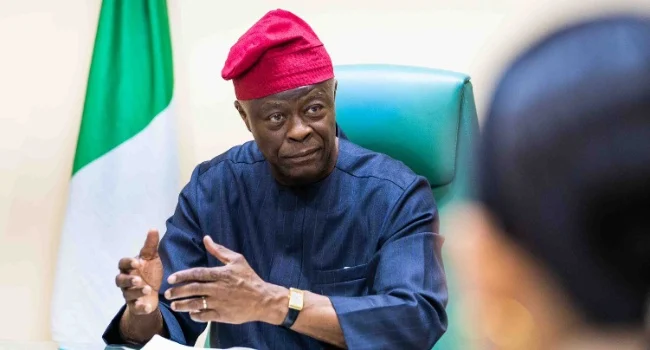Nigeria’s Minister of Finance and Coordinating Minister of the Economy, Wale Edun, has assured citizens that the Federal Government has no immediate plans to implement the proposed 5 per cent tax on petroleum products.
Speaking to reporters in Abuja on Tuesday, Edun explained that although the fuel surcharge is included in the new Tax Administration Act scheduled to take effect on January 1, 2026, its implementation is not automatic.
Tax Not a New Proposal
The minister stressed that the 5 per cent surcharge was not newly introduced by President Bola Tinubu’s administration, but rather a long-standing provision dating back to the 2007 Federal Road Maintenance Agency (FERMA) Act.
He said the inclusion of the provision in the 2025 Tax Act was meant to consolidate and harmonize existing laws, making them easier for Nigerians and businesses to understand and comply with.
Edun clarified that before such a surcharge can take effect, it must follow a formal process.
“The tax reform bills and the tax act would not become operational until January 1, 2026, and the 5 per cent fuel surcharge which is mentioned therein will not automatically come into effect,” he said.
“Before any surcharge can come into effect, it requires a commencement order from the Honourable Minister of Finance, and this must be published in a government gazette. So it is not automatic that we will wake up on January 1 and there is a new tax. As of today, no order has been issued, none is being prepared, and there is no immediate plan to implement any surcharge.”
On Monday, the Trade Union Congress (TUC) strongly opposed the proposed fuel tax, labeling it a “reckless proposal” and an act of “economic wickedness” against already overburdened Nigerians.
The union argued that introducing additional taxes on petroleum products would worsen hardship, cripple businesses, and drive more Nigerians into poverty.
TUC further warned that the government must stop using citizens as “sacrificial lambs” in its economic reform efforts.
While the clarification may calm immediate fears, Nigerians remain cautious as any eventual implementation of the fuel surcharge could significantly impact transportation costs, energy prices, and the wider economy.
Stay tuned to 9am News Nigeria for more Breaking News, Business News, Sports updates And Entertainment Gists.
















